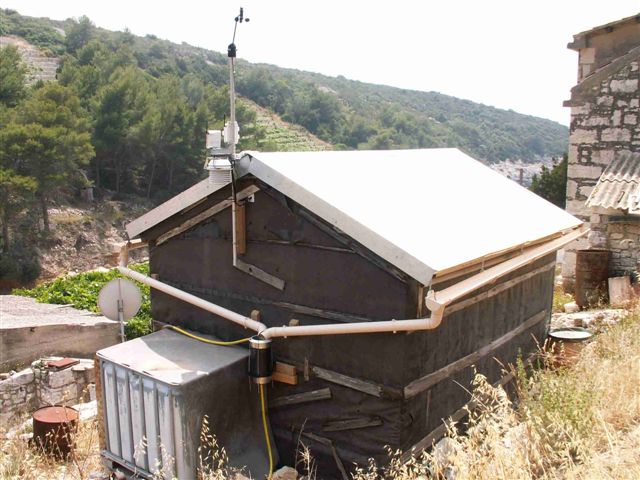Difference between revisions of "Classical ferrocement tank"
| Line 10: | Line 10: | ||
==Costs== | ==Costs== | ||
| + | Ferrocement tanks: US$26 - $50 per m3 storage depending on size (e.g. 11m3 for US$550, 46m3 for US$1,200). Experience from the RAIN Foundation seems to indicate a cost of between 40-100 Euro per m3 storage for ferrocement tanks (including everything like materials, transport and labour). Partial below-ground ferrocement tanks have also been made where part of the structure is underground and part is above ground - US$24.5 per m3 storage (e.g. 10.8m3 for US$265). | ||
| + | '''To save on costs'''<br> | ||
| + | Reduce the size of structures, which increases the cost per m3 storage but more manageable to construct in terms of cash flow, and easier to cover. This way, tanks are more affordable to families, and more tanks can be added in subsequent years, thus spreading out costs. | ||
| + | |||
| + | Access to finance is a main obstacle to promotion of rainwater harvesting for households, and is important so that users can replicate the technology – however, so far there are few examples on a global level with micro-credit for rainwater harvesting. An initiative is underway in Nepal to trial the promotion of rainwater harvesting tanks through a combination of subsidy and credit from micro-finance institutions (MFIs), mainly targeting women, where gradually over time the subsidy will be replaced by credit completely where rainwater harvesting systems will hopefully be one of the credit products for MFIs. Lessons learned from micro-credit for biogas plants in Nepal show that the system can work when initially mixed with government subsidy – total repayment period ranges from 5 – 7 years and interest rates vary between 11.5 – 16%. | ||
==Field experiences== | ==Field experiences== | ||
Revision as of 05:55, 13 April 2012
The classical ferrocement tank is a water tank made of cement reinforced with metal mesh or wire. It is used all around the world. The construction is simple and does not require a lot of material.
Suitable conditions
Construction, operations and maintenance
Costs
Ferrocement tanks: US$26 - $50 per m3 storage depending on size (e.g. 11m3 for US$550, 46m3 for US$1,200). Experience from the RAIN Foundation seems to indicate a cost of between 40-100 Euro per m3 storage for ferrocement tanks (including everything like materials, transport and labour). Partial below-ground ferrocement tanks have also been made where part of the structure is underground and part is above ground - US$24.5 per m3 storage (e.g. 10.8m3 for US$265).
To save on costs
Reduce the size of structures, which increases the cost per m3 storage but more manageable to construct in terms of cash flow, and easier to cover. This way, tanks are more affordable to families, and more tanks can be added in subsequent years, thus spreading out costs.
Access to finance is a main obstacle to promotion of rainwater harvesting for households, and is important so that users can replicate the technology – however, so far there are few examples on a global level with micro-credit for rainwater harvesting. An initiative is underway in Nepal to trial the promotion of rainwater harvesting tanks through a combination of subsidy and credit from micro-finance institutions (MFIs), mainly targeting women, where gradually over time the subsidy will be replaced by credit completely where rainwater harvesting systems will hopefully be one of the credit products for MFIs. Lessons learned from micro-credit for biogas plants in Nepal show that the system can work when initially mixed with government subsidy – total repayment period ranges from 5 – 7 years and interest rates vary between 11.5 – 16%.

